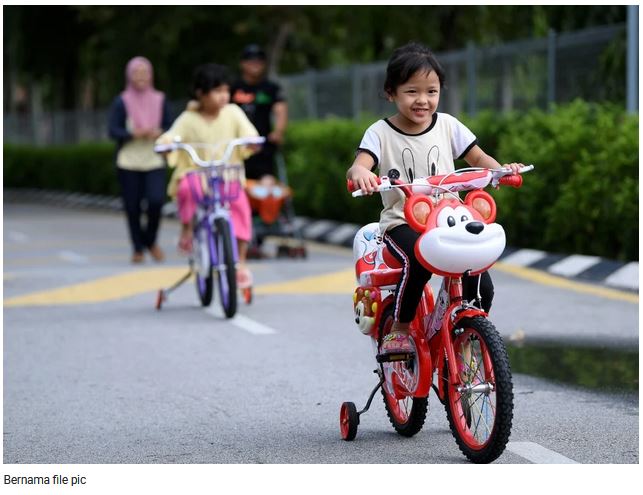Children's mental health, education as vital as economic recovery
Emeritus Professor Tan Sri Dato' Dzulkifli Abdul Razak
Opinion - New Straits Times
June 8, 2021
LOCKDOWNS by any name sound unsettling to many. As nomadic, modern beings, adjusting to lockdowns is never easy. Mobility has been an essential part of living since some 300 years ago, beginning with the first industrial revolution.
The introduction of the steam engine revolutionised human interactions, as well as the human-ecological interplay as humankind explored, and later exploited, the environment in the name of progress, at times bringing a number of disadvantages to the collective survival.
Hence, it is not difficult to understand why the "stay home" instruction is often not taken seriously, especially when there seems to be varying standards of implementation despite a standard operating procedure.
If "lockdown", commonly understood as a physical phenomenon, is not easily accepted and practised, the "mental" dimensions are even often illusive, if not totally ignored. The relationship between the physical and mental (or spiritual) aspects and consequences of lockdowns are seldom articulated.
Normally, during the pre-pandemic days, the latter was soothed by taking a trip to the various outlets (vacation, shopping) that somehow takes care of the so-called "boredom" as it is generally identified with. However, when one is physically isolated for days on end, this is no longer a choice. Instead, "boredom" looms large and eventually manifests in a myriad of mental health problems.
This is now the issue at hand as the coronavirus pandemic evolves to become a threat not only to physical health, but, insidiously, mentally as well. In fact, not unlike the Covid-19 infection itself, a mental health problem cannot be easily detected unless trained professionals "test" for it.
To carry this out on a massive scale is challenging; in fact, more so because younger age groups that are said to be most vulnerable might not be able to articulate what they are feeling. In contrast, physical symptoms are easily recognised.
Last week, Dutch non-governmental organisation KidsRights revealed that millions of children who have missed out on education because of Covid-19 restrictions could face long-term impacts on their physical and mental health. Its chairman said the effects of the pandemic on children had "unfortunately exceeded our predictions at the outset last year".
"Apart from patients of the coronavirus, children have been hardest hit, not directly by the virus itself, but were fundamentally failed through the deferred actions of governments around the world, despite the signals, which will lead to serious, long-term repercussions for the health of future generations," he said.
"Governments globally must focus on mental health and education as much as the economy in their post-Covid-19 crisis policies to safeguard future generations. Education recovery is the key to avoiding a generational catastrophe."
The United Nations Educational, Scientific and Cultural Organisation said "over 100 million additional children will fall below the minimum proficiency level in reading as a result of the health crisis".
Britain's Royal College of Psychiatrists identified "the devastating effect that school closures, disrupted friendships and the uncertainty caused by the pandemic have had on the mental health of our children and young people".
The KidsRights Index 2021 showed that countries were not allocating enough funds for the realisation of children's rights.
It is noteworthy that, on average, industrialised countries scored lowest on this index. It is believed that countries that are doing well in economic growth or human development are not necessarily also doing well in meeting the obligations under the UN Convention on the Rights of the Child (CRC). Thus, the implication on mental health is looming.
Early preparedness is imperative if more innocent lives are to be spared. But identifying the facilities and personnel needed for this exercise is far from satisfactory. In the longer term, schools and institutions of higher learning must develop tools to help children build better coping skills and resilience in addressing what the KidsRights Index reported.
It is not about merely "doing well overall in achieving economic growth" but also doing well to protect and promote the mental health of children in all conditions, especially during lockdowns.
The writer, an NST columnist for more than 20 years, is International Islamic University Malaysia rector

